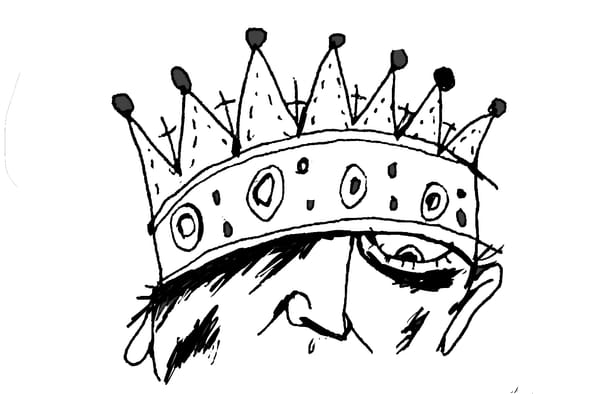The best solution to Britain’s incessant palace scandals would be to have a monarchy but no actual monarch. Imagine it. No squabbling heirs, no naughty princesses, no dubious younger brothers with disreputable friends, plus a hugely reduced budget. Such a monarch could be called the Lord Regent or something of the sort. He would need only one palace, and no vintage Bentleys or helicopters. A kindly retired admiral would be ideal. He could perform the necessary knightings and medal distributions, in the name of the king. Occasionally he could welcome foreign heads of state and accompany them to twelve-course white-tie dinners in a horsedrawn carriage. He could live in a modest residence and ride around London on a bicycle, stopping to chat from time to time, while a plainclothes constable pedalled along behind him to keep him from harm. If by chance he misbehaved—as even admirals sometimes do—he would be swiftly removed. On retirement, he could be replaced by another grizzled seadog, or perhaps an ancient general.
I am perfectly serious. Constitutional monarchs have no actual power. They are similar to the king on a chessboard, whose only strength is to keep others away from his square. And this we must do, if we are wise. Career politicians must never be allowed to come near the grand parts of the state, or to hold titles such as “Commander in Chief,” which Americans unwisely give to their president. Once political hacks start taking the salute and appearing on horseback before the palace guard, they will swiftly become drunk on their own vanity, and far too powerful. Also they will be far too sensitive to criticism, because they think they deserve dignity. And, as they do not in fact deserve it, they will be especially angry when they do not get it.
